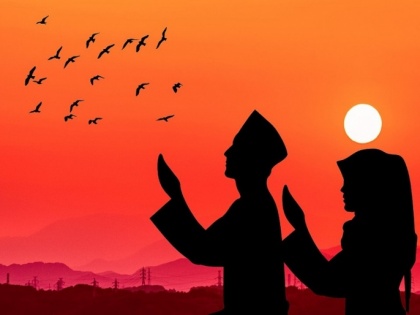Shab-e-Barat 2024: WhatsApp Status, Messages and Wishes for Laylat al-Bara’ah
By Lokmat English Desk | Published: February 25, 2024 02:22 PM2024-02-25T14:22:43+5:302024-02-25T14:22:56+5:30
Shab-e-Barat, also known as Laylat al-Bara’ah, is the Muslim Night of 'Fortune and Forgiveness'. It is a cultural celebration ...

Shab-e-Barat 2024: WhatsApp Status, Messages and Wishes for Laylat al-Bara’ah
Shab-e-Barat, also known as Laylat al-Bara’ah, is the Muslim Night of 'Fortune and Forgiveness'. It is a cultural celebration marked by people of the Muslim community across India.
Laylat al-Bara’ah is observed on the 15th day of Shaban by Muslims who believe that Allah decides the fortune and future of all creatures on this night. It will start from the ‘namaz e maghrib’ on Sunday (February 25) and culminate with ‘namaz e fazar’ on Monday (February 26).
To mark Shab-e-Barat 2024, we have compiled a list of Shab-e-Barat 2023 wishes, Shab-e-Barat Mubarak 2024 messages, Shab-e-Barat greetings, Shab-e-Barat SMS to share with your family and friends.
Alsor Read | Shab-e-Barat 2024 Date: When Is 15th Night of Sha'ban in India? Know Significance and Key Facts.
WhatsApp Message: On the Night of Fortune and Forgiveness, Focus on Prayers and Remember To Be Thankful to Allah. Have a Blessed Shab E-Barat 2023.
WhatsApp Status: If You Can Forgive Yourself, Then You Can Forgive Everyone. Happy Shab E-Barat to You and Your Family.
WhatsApp Wishes: May Allah Provide You With Solace, Bundles of Happiness, Good Health and Wealth Throughout the Year. Shab E-Barat Mubarak.
WhatsApp Message Reads: On This Night of Fortune and Forgiveness, Remember Mistakes Are Forgiven, Only if You Get the Courage To Admit Them. Shab-E-Barat 2023 Mubarak!
This night, observed by Muslims, holds particular importance for Sunni Muslims, especially those following the Barelvi and Deobandi schools of thought.
Open in app